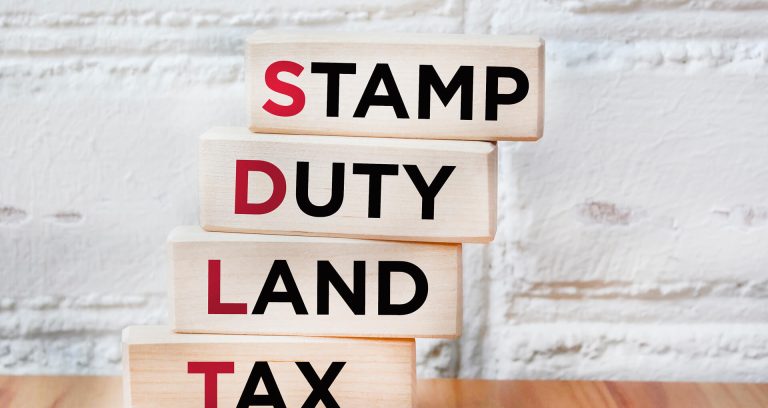Partner Ignoring Court Order to Sell House: What Are Your Options in the UK?
When a relationship breaks down and a jointly owned property becomes the focus of legal proceedings, emotions run high. If the court has issued an order to sell the property, both parties are expected to comply. However, if your former partner is refusing to cooperate, you may find yourself facing even more stress and uncertainty. Fortunately, the UK legal system provides several options for enforcing a court order in such situations.
What Does a Court Order to Sell a House Mean?
A court order to sell a house is a legally binding instruction issued by a judge, typically under the Trusts of Land and Appointment of Trustees Act 1996 (TOLATA). It outlines how and when the property should be sold, and how the proceeds are to be divided between the co-owners. Ignoring this order is a serious matter that can lead to legal penalties for contempt of court.
Why Would a Partner Refuse to Sell?
There are many reasons why an ex-partner might refuse to comply with the court’s decision:
- They are emotionally attached to the property
- They disagree with the valuation or sale terms
- They are trying to delay the sale to cause inconvenience
- They believe the court order is unfair or biased
No matter the reason, non-compliance is not acceptable under the law, and the courts have mechanisms to deal with such situations.
Your Legal Options If a Partner Ignores a Court Order
If your ex-partner refuses to follow the court order, you can take action through the legal system to enforce the decision. Here are some of the most effective measures:
Apply for Enforcement of the Court Order
The most direct approach is to apply to the court for enforcement. This shows that you’re serious about resolving the issue and compels your ex-partner to comply. Depending on the circumstances, the court may issue any of the following:
- Warrant of Possession: If your partner won’t vacate the property, a warrant of possession enables bailiffs to legally remove them.
- Order for Sale: The court may appoint a third party (such as a solicitor) to carry out the sale on behalf of both owners, eliminating the need for your partner’s cooperation.
- Charging Order: This places a legal claim on your partner’s share of the sale proceeds, ensuring any debts or costs are paid first.
- Committal Proceedings: If the non-compliance is severe, the court may start committal proceedings. This could result in a fine or even imprisonment for contempt of court.
Get Help from a Solicitor
Hiring a solicitor who specialises in property and family law can make a significant difference. Your solicitor will:
- Advise on the best course of legal action
- Communicate with your ex-partner’s legal representative
- Prepare and file all necessary paperwork
- Represent you in court proceedings
If you’re unsure where to start, consider contacting organisations like Resolution, which specialises in family dispute resolution.
Can Mediation Help?
In some cases, communication or mediation may still be possible—even if your ex-partner is currently ignoring the court order. Mediation is often quicker and less expensive than returning to court. However, if one party is acting in bad faith, it may not be a viable solution.
Attempting mediation shows the court that you’ve made every reasonable effort to resolve the matter amicably, which can work in your favour later during enforcement proceedings.
Financial Implications of Enforcing a Court Order
Pursuing enforcement through the courts involves legal fees, but you may be able to recover those costs if your ex-partner is found to be in breach of the court order. It’s essential to:
- Keep detailed records of all expenses and communications
- Ensure your solicitor submits a claim for costs as part of the enforcement application
- Document any financial harm or delays caused by the non-compliance
Remember, ignoring a court order may also negatively impact your ex-partner’s credit rating or ability to engage in future legal agreements.
Can You Sell Without Your Partner’s Consent?
In some cases, if a court has ruled in favour of a sale, you may be able to proceed without your ex-partner’s involvement. If the court grants an order for sale and your ex refuses to sign contracts, the appointed third party (often a solicitor or court officer) can sign on their behalf. This eliminates any further delays.
Fast Cash House Buying as an Alternative
If the situation drags on and you want to avoid further delays, you might consider selling your home to a fast cash house buyer. These companies specialise in purchasing properties quickly—even in complicated legal situations. They are often willing to buy:
- Properties with unresolved disputes
- Homes stuck in contentious divorce proceedings
- Situations involving uncooperative co-owners
National House Buyers offer quick, hassle-free sales, allowing you to move on without waiting for your ex-partner to agree. Although you may not achieve full market value, you can avoid estate agency fees, legal wrangling, and prolonged financial strain.
Summary: Take Control of the Situation
Having a partner who ignores a court order to sell a house is frustrating, but it doesn’t mean you’re powerless. The UK legal system provides clear pathways to enforce such orders and protect your rights. Here’s what you should keep in mind:
- Act quickly: Delays can result in further complications and financial loss.
- Seek legal advice: A qualified solicitor can streamline the process and provide expert guidance.
- Document everything: Clear records help support your case in court.
- Explore fast sale options: If you need to move on, a professional cash buyer might be the best route.
Whether through court enforcement or by working with a fast cash house buying service, there are practical solutions available. The key is to stay proactive and assert your legal rights with confidence.
Need to Sell Quickly Without the Hassle?
If you’re dealing with a difficult co-owner or facing delays due to a partner ignoring a court order, we can help. Our experienced team specialises in fast cash house buying solutions across the UK. We’ll buy your property as-is—no legal delays, no waiting, no fees.
- ✔ Fair cash offers within 24 hours
- ✔ Completion in as little as 7 days
- ✔ No estate agents, no legal hassle
Take control of your situation today. Contact us now for a free, no-obligation cash offer and move forward with peace of mind.
Frequently Asked Questions
What happens if my ex-partner refuses to sign the sale documents?
If a court has already issued an order for sale, the court can appoint someone (such as a solicitor) to sign on your ex-partner’s behalf. You can contact us for help navigating this process with speed and confidence.
Can I sell a house fast even if there’s a legal dispute?
Yes. Many fast cash house buyers like us specialise in purchasing properties involved in legal or co-ownership disputes. We can often complete in days—even in complicated circumstances.
Will I lose money selling to a cash buyer?
You might receive slightly less than full market value. However, you avoid estate agent fees, long delays, and legal complications—making it a smart choice in many difficult situations. Learn more about our process here.
How long does it take to enforce a court order to sell a property?
It depends on the complexity and how quickly you take action. If you’re unsure where to begin, speak to our team today and get expert guidance without delay.
About National House Buyers
Selling your house shouldn’t be stressful. When selling quickly is paramount, National House Buyers offers a transparent and effortless solution. At NHB, we offer a hassle-free solution for those needing to sell quickly. We buy any type of property, in any condition and location, for cash with a guaranteed sale.
Say goodbye to the conventional selling headaches: no estate agent commissions, escape the uncertainty of property chains, and be assured of no hidden charges or drawn-out waiting periods. We’re dedicated to providing UK homeowners with a rapid, hassle-free sale, ensuring a smooth transition to your next chapter.
Find out how it works or call us free on 0800 032 1217 today.



